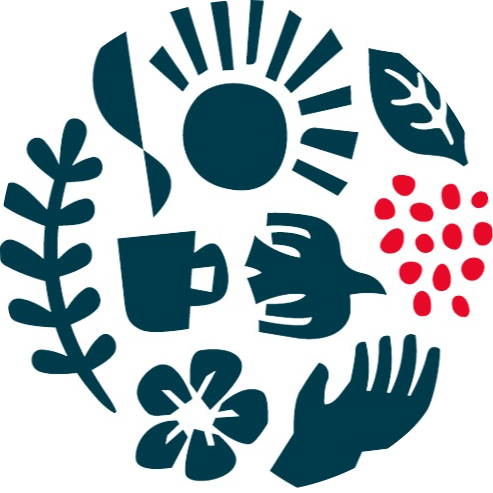Coffee is a beloved beverage worldwide, with drinkers everywhere having their preferences and philosophies on the perfect cup. However, one method gaining more attention is known as ‘Direct Trade Coffee.’ A significant benefit of this type of coffee is that it often guarantees better prices for coffee farmers and better quality control for roasters.
In this blog, we’ll explore the different aspects of Direct Trade Coffee – from its origins to understanding its global impact. So sit back, have a cuppa, and let’s learn about Direct Trade Coffee.
Direct Access Coffee
Direct access coffee has become an increasingly popular way to purchase and consume coffee. Through this form of Direct Trade, buyers can buy coffee from the farmers and cooperatives that produce it, allowing them to access higher-quality beans and a more ethical product.
The goal of direct access coffee is simple. Rather than being bought through restocking companies and brokers, direct access coffee establishes relationships between roasters and growers to facilitate more transparent transactions while supporting sustainability. As such, direct access to coffee promotes sustainable farming practices, creating an economy that benefits the farmers and empowers them to sustain their livelihoods and those of their communities.
By purchasing direct-access coffee, you can be sure that your daily cup is doing more good than just providing a delicious caffeine boost!
The Often Dark and Rocky History of Coffee
Coffee production has had a dark history involving the enslavement of people and child labor. Most coffee beans in the 1700s and 1800s were grown by enslaved people in countries like Brazil, Colombia, and El Salvador. Conditions further worsened when, after receiving their independence, cultivators of coffee were subject to the hardships of poverty and coerced into oppressive practices such as low wages, even no wages at all.
These issues are still greatly felt today, with millions of vulnerable farmers desperately depending on unfair trade agreements which do not give them enough authority or monetary benefit from their hard work. Many still use overly labor-intensive methods, like climbing tall trees to harvest coffee cherries by hand in regions with no safety regulations—and these kinds of tasks are often completed by children working full time instead of going to school.
This is why direct trade coffee has become an essential alternative for us to support a system that advocates equality rather than exploitation in production.
How Fair Trade Coffee Came To Be
Fair Trade was created to address the exploitation of farmers and workers in less advantaged countries. Its goal was to give producers direct market access and a fair price. However, this system of certifying Fair Trade has turned out to be too expensive, labor-intensive, and bureaucratic for some farmers. This has led to the rise of ‘Direct Trade’: an alternative that focuses on collaborative partnerships between farmers and roasters to ensure everyone along the production chain is getting their due.
Direct trade coffee evolved out of this effort by taking things a step further – instead of relying on third-party certifications, direct Trade cuts out the middleman, allowing roasters to strike deals directly with the local farmers, incentivizing quality products while paying them better prices.
Fair Trade Farms and Abuse
There have been reports of exploitative labor conditions on fair trade farms in recent years. Reports from labor inspectors detail workers being paid far below the minimum wage, working excessive hours, and under dangerous conditions with little regard for their safety. Some employees have faced threats and abuse for voicing grievances or challenging authority. Such practices have raised serious questions about the effectiveness of the guarantees granted by Fair Trade certifications and led to a shift in focus towards more transparent trading practices such as Direct Trade coffee.
Direct Trade vs. Fair Trade Coffee
Direct Trade coffee is held to a higher standard than its Fair Trade counterpart, as it was created in response to the disconnect that sometimes arises between roasters and small-scale farmers in areas of poverty. The goal of Fair Trade, while honorable, has sometimes missed the critical mark of enabling small-scale producers to achieve greater economic justice. As a result, Direct Trade addresses this through the following movements:
- Providing better communication, transparency, and equity across the entire supply chain.
- It aims to understand and connect with the farmers individually so that both parties understand what commodities are being traded.
- It gives more control back to the farmers and ensures a higher quality product for consumers than traditional Fair Trade models.
- Allows for more direct investment within local economies, benefiting farmers and consumers.
What Counts as Direct Trade
Direct Trade coffee is often touted as the best way to get your morning java fix, and for a good reason. Direct Trade also often includes growth opportunities like access to improved seed genetics and financing for infrastructure development and reforestation. Moreover, co-op washing stations or mills don’t have to discount their product for direct access to coffee, so that they can invest more in health, education, and other benefits for the local community. Direct Trade has revolutionized how coffee is sourced worldwide; it’s an ethical and sustainable way to get yourself a quality cup of joe.
Ethical Benefits of Direct Trade
Direct trade coffee is a specialty coffee sourcing model that promotes transparency and ethical relationships between farmers, producers, and roasters. Below are its other benefits:
- It ensures that the farmers get fair prices for their products and can grow their businesses without exploitation.
- It also encourages better working conditions and social accountability in the countries where the beans are grown.
- Direct Trade also provides a much higher quality product, allowing the farmer to focus on growing one specific variety of beans. In contrast, conventional coffee farms produce widely different types.
- Direct Trade puts money back into rural communities, allowing them to develop economically while improving environmental practices at the same time.
Where To Buy Direct Trade
At Cherri Cafe, we’re confident that our offerings will do justice to the craftsmanship of its growers. So whether you’re an occasional coffee drinker or an avid lover, our selection provides something that can satisfy any taste. In addition, with more people taking the time to appreciate and learn about the hard work of producing direct trade coffee, more producers have access to a living wage that helps improve their overall well-being. So if you’re looking for great coffee with a greater purpose, try Cherri Cafe!




